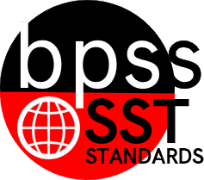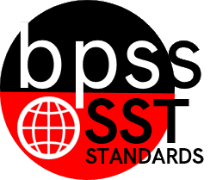2nd Grade Social Studies (Archived)
 BPS District Social Studies Standards Book
BPS District Social Studies Standards Book
SST-02 "I can ... statements"
1st Grade Social Studies
2nd Grade Social Studies
4th Grade Social Studies
5th Grade Social Studies
7th Grade Social Studies
8th Grade Social Studies
| Standard 2: History |
SST-02.2
Narrative for the Important Historical EventsThrough active learning experiences, students in the second grade are able to apply thinking and decision-making skills within the context of their school and neighborhood. Students examine events and changes that might take place in the future. They should have the opportunity to use a variety of means for gathering and organizing information. In the history standards, students differentiate between events that happened in the past and recently, recognize examples of continuity and change in local and regional communities, and consider ways that people and events of the past and present influence their lives. Calculation Method for StandardsStandards are larger groups of related benchmarks. The Standard Grade is a calculation of all the related benchmarks. Click on the benchmark name below each Standard to access the learning targets and proficiency rubrics for each standard's related benchmarks. | |
SST-02.2.02
Student Learning Targets:Knowledge Targets
Proficiency Rubric
ResourcesWebsites Helping Your Child With Social Studies Social Studies in Second Grade
Vocabulary
| ||||||||||||||||||||||||||||||||||||||||
SST-02.2.03
Student Learning Targets:Knowledge Targets
Reasoning Targets
Skills (Performance) Targets
Product Targets
Proficiency Scale
ResourcesWebsites Vocabulary | ||||||||||||||||||||||||||||||||||||||||||||
SST-02.2.04
Student Learning Targets:Knowledge Targets
Reasoning Targets
Skills (Performance) Targets
Product Targets
Proficiency Scale
ResourcesWebsites Vocabulary | ||||||||||||||||||||||||||||||||||||||||||||
SST-02.3.01
Student Learning Targets:Knowledge Targets
Reasoning Targets
Skills (Performance) Targets
Product Targets
Proficiency Scale
ResourcesWebsites Vocabulary | ||||||||||||||||||||||||||||||||||||||||||||


 Standard 2:
Standard 2: